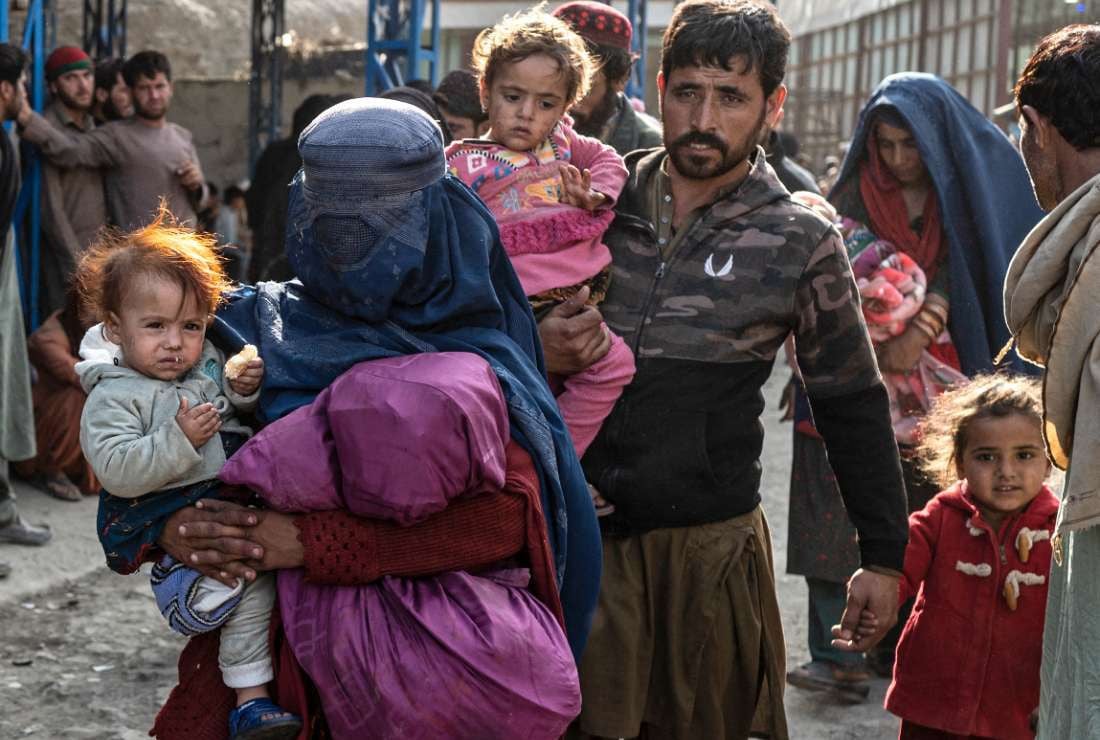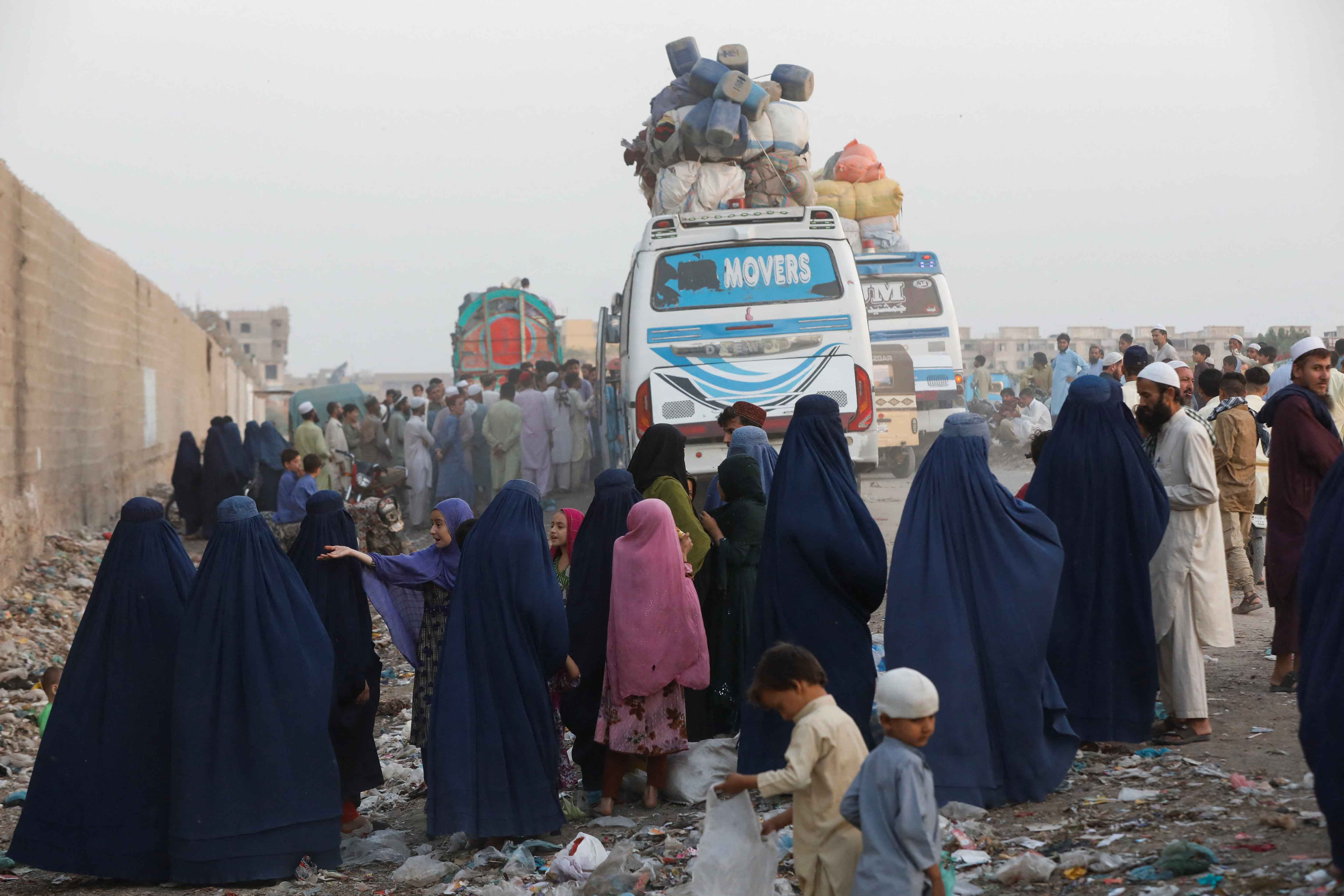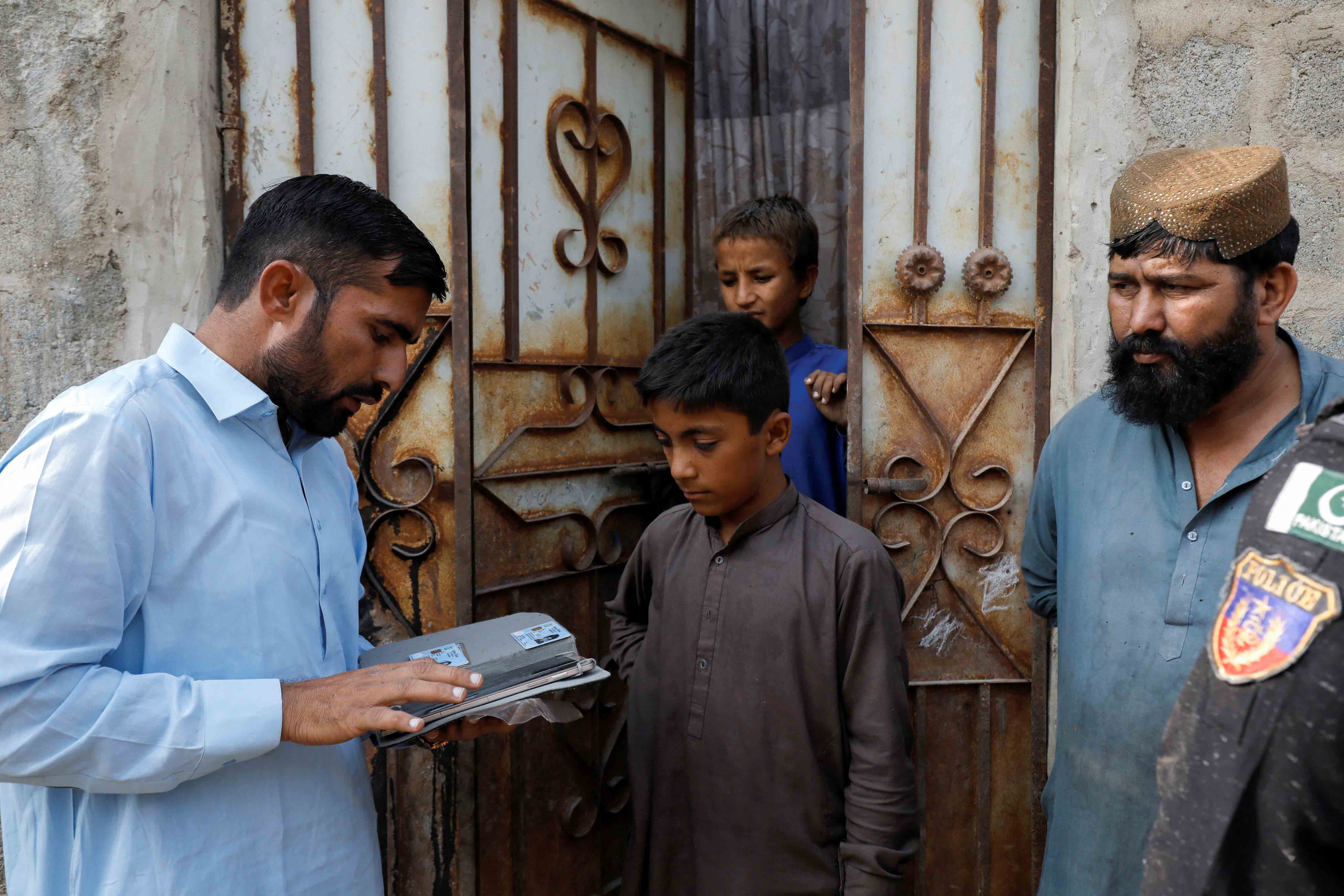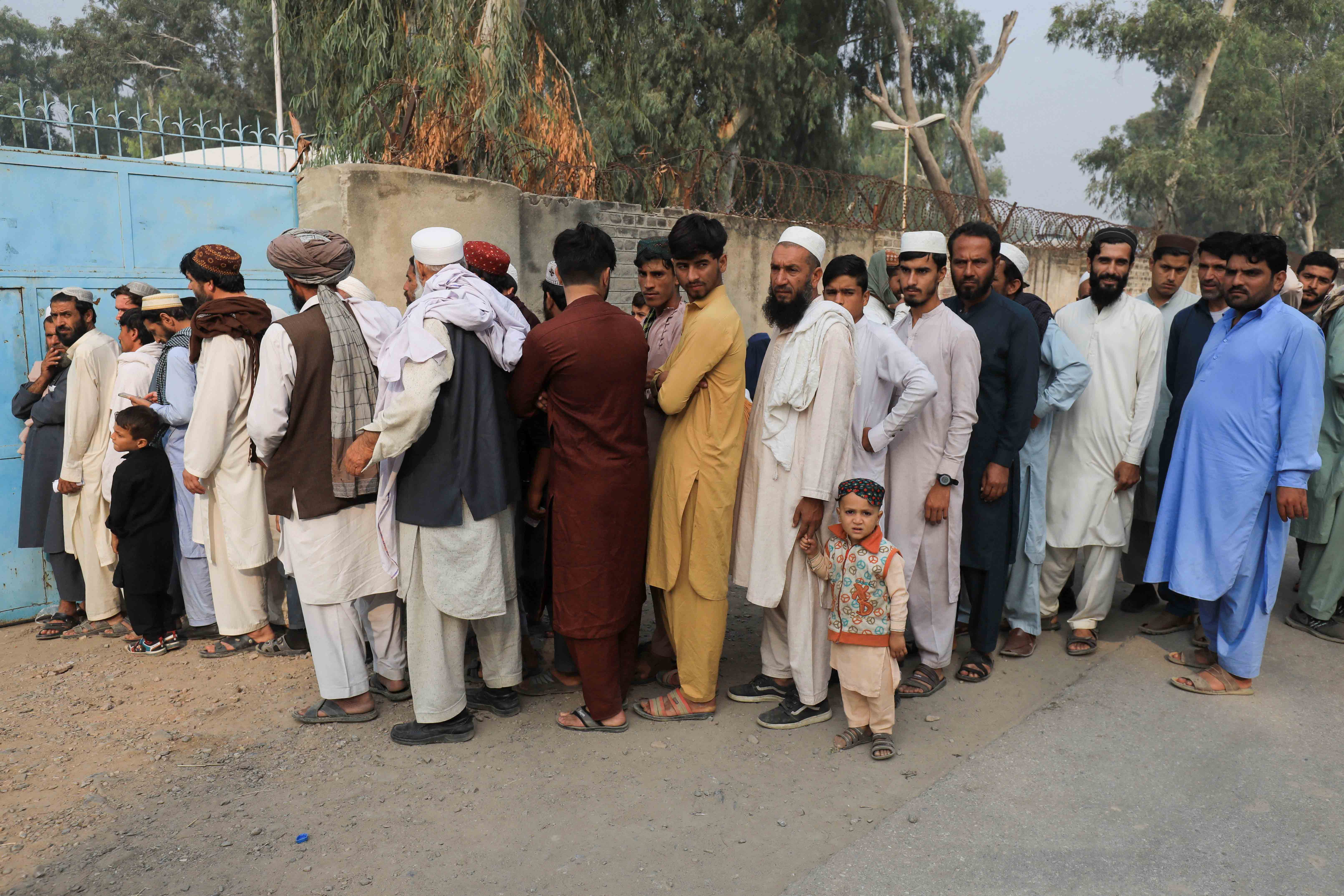As relations between Pakistan and the Afghan Taliban administration of Afghanistan continue to deteriorate over the issue of the latter's support for the largest Pakistani terrorist network, the Tehreek-e-Taliban Pakistan (TTP), Islamabad has decided to accelerate the process of repatriating millions of Afghans living on its soil. Preparations are underway to commence the second phase of repatriation for an estimated 880,000 Afghan Citizen Card (ACC) holders, who are considered 'registered' or 'documented' Afghans. Pakistani law enforcement agencies (LEAs) are already working on a comprehensive plan to gather district-wise data of these Afghans.
The 'registered' or 'documented' Afghans living in Pakistan can be broadly categorised into two groups: the first category consists of individuals holding Afghan Citizen Cards (ACCs), duly issued by the Pakistan National Database and Registration Authority (NADRA, while the second comprises individuals possessing Proof of Registration (PoR) cards, also issued by NADRA. According to data from the United Nations High Commissioner for Refugees (UNHCR), there were 1.3 million refugees holding PoR cards as of the census conducted in 2006-07. Additionally, an estimated 880,000 refugees were provided ACCs following a registration drive in 2017. Therefore, the total number of registered or documented Afghans in Pakistan, according to UNHCR, is 2.18 million.
It is worth noting that Pakistani authorities estimate the presence of 1.7 million undocumented, unregistered, or simply illegal Afghans in Pakistan. However, both the UNHCR figures regarding documented Afghans in Pakistan and Pakistani authorities' statistics about illegal Afghans appear to be imprecise, given the historically porous nature of the Pakistan-Afghanistan international border, which spans 2,640 kilometres. As a result, Afghans have been entering Pakistan with relative ease, due to the significant capacity constraints faced by Pakistani border authorities, LEAs and registration bodies, like the Bureau of Statistics. These agencies struggle to effectively track the presence of foreigners in Pakistan and to collect and analyse data on aliens.
Furthermore, there is a notable disparity between UNHCR and Pakistani data regarding the total number of Afghans in Pakistan. UNHCR data suggests around 3.7 million Afghans living in Pakistan, while Pakistani authorities claim there are more than 4.4 million Afghans in the country.

Assessing the first phase
In the initial wave of repatriation of millions of Afghans, Pakistan last October asked all illegal or 'undocumented' Afghans residing within its borders to voluntarily depart within one month, by the start of November. Once this deadline expired, Pakistani authorities began apprehending illegal Afghans, albeit with a largely gentle and lenient approach, in order to effectively implement the decision to repatriate undocumented aliens from its western neighbor.
This first phase of repatriation of Afghans from Pakistan has yielded mixed results. According to assessments by the country's LEAs, approximately 500,000 illegal Afghans have returned to their country thus far. Given the complexity of the issue surrounding the Afghan community and its numerical strength, the return of half a million illegal Afghans represents a significant achievement.
Unpacking the second phase
Pakistan's decision-makers may have concluded that sending back an estimated 4.4 million Afghan nationals, whether they are refugees, illegal immigrants, or Afghan citizens with valid documents, is necessary due to critical security threats. However, there are multiple other valid reasons for Pakistan to repatriate millions of Afghan refugees.
It is important to note that over the last two and a half years, particularly after the Afghan Taliban militia's resurgence and assumption of state power in Afghanistan on August 15, 2021, there has been a monumental increase in terrorist attacks in Pakistan. Most of these attacks have occurred in the Khyber-Pakhtunkhwa and Balochistan provinces, both of which share borders with Afghanistan.
By November 2023, according to Pakistan’s then caretaker prime minister Anwar Kakar, there was a massive increase in terrorist attacks. "During the last two years when the Afghan Taliban returned to power, terrorist attacks have increased by 60 per cent, while suicide attacks increased by 500 per cent in Pakistan," Kakar had said, adding that 2,267 Pakistanis had lost their lives in these attacks. The most significant aspect of these numerous attacks in Pakistan since August 2021 is that Pakistani authorities found Afghan nationals' involvement in these terrorist activities. However, this does not imply any disparaging or negative stereotyping of Afghans, as obviously, most of them are peace-loving and therefore cannot be held responsible for the crimes committed by a few hundred of their compatriots.

Pakistan's strategy of repatriating 4.4 million Afghans, beginning with the return of 'illegal' or 'undocumented' refugees and now followed by ACC holders, 'registered' or 'documented' Afghans living in Pakistan, is quite well-articulated. Detractors may not agree due to the relatively low number of 'illegal' Afghans who have returned to their country so far. However, as mentioned above, due to the complexity of the issue involving the massive number of Afghans in Pakistan and their future, observers, analysts, and officials understood that not all illegal Afghans could be sent back at once or within such a limited time frame.
The plan aimed to provide an opportunity for illegal Afghans to voluntarily repatriate because each person returning would lay the groundwork for subsequent repatriations. Otherwise, if Pakistan had started by sending back 'registered' or 'documented' Afghans first, which is relatively easier than repatriating illegal or 'undocumented' Afghans, the international criticism would have been severe.
Now, in the second wave of repatriation involving Afghans holding ACCs, it is expected that almost all of these 880,000 documented individuals from Pakistan's neighboring country would be easily repatriated. If this phase is completed successfully, it is anticipated that half of the very convoluted issue of millions of Afghan refugees would be addressed effectively.
The foremost reason is that once those Afghans having ACCs are repatriated, it would be relatively easier to identify the remaining illegal and 'undocumented' Afghans living in Pakistan. Within the larger issue of Afghans residing in Pakistan, the problem of illegal Afghans is the most critical and challenging for Pakistan. This is because among Afghan citizens found involved in terrorist activities, most have been illegal immigrants or temporary residents in Pakistan. Thus, the main issue lies in the involvement of illegal Afghans in terrorist activities.
However, as the problem of illegal Afghan immigrants cannot be resolved all at once and directly, the better option is to first repatriate all the registered Afghan nationals living as refugees or otherwise in Pakistan. This would facilitate a clearer focus on addressing the issue of illegal Afghans more effectively.

The logic of repatriation
Some may argue that most documented Afghans are involved in business and trade in Pakistan rather than criminal or terrorist activities, thus Pakistan should not repatriate them. However, this view is fundamentally erroneous. Firstly, no country, regardless of its economic strength, could afford the burden of such a large number of residents. Aliens in a country pose significant economic security risks as well as environmental hazards.
It is important to note that most registered and undocumented Afghans reside in K-P and Balochistan, which are the least economically developed provinces of Pakistan. Meanwhile, Afghan nationals, whether legal or illegal, have significant stakes in the economies of these regions. This situation has severely hindered the economic development of local Pakistanis by limiting their business and trade opportunities. This is especially problematic at a time when government job opportunities are scarce and the private sector in both provinces is weak.
Dr Yousaf Ali, a Peshawar-based analyst and observer, argues, "Afghans are our brothers, but there is no denying the fact that their control of the business, trade, or service sectors of the K-P and Balochistan economies has proved disastrous for local populations."
Apart from the severe negative economic repercussions of the nearly five million Afghans present in Pakistan, the undesirable socio-cultural consequences of such a large foreign community for the country have been pernicious. Afghans themselves take excessive pride in being a 'martial' race and having a bellicose nature. History is also a testament to this national character of Afghans. As Afghanistan did not experience direct British control or rule when the entire India was a colony of the United Kingdom, the latter could not witness the infrastructure and institutional development that India experienced.
For instance, British colonialists constructed long railways across the massive British India, from Calcutta and other southern Indian cities to Peshawar and Quetta in the northern and westernmost parts of the empire. However, Afghanistan, despite being close to Peshawar and Quetta, never had railway lines. Moreover, a modern institutionalised economy and budgeting system have never been established in Afghanistan, while British India and Pakistan, as a successor state, have had the very foundations of a modern economy.
"Consequently, primordial tribal societal structures have not only remained well-entrenched in Afghanistan but have been growing," observes Dr Naila Aman Qazi, a sociologist at the University of Peshawar, Pakistan, who has conducted several research studies on Afghanistan and Pakistani societies. She argues that having socialised in such ultraconservative social structures and cultural milieus, most Afghans' outlook unfortunately could not develop desirably, resulting in unending conflicts in that society.

"When millions of Afghans descended on Pakistan in the aftermath of the Soviet Union's occupation of Afghanistan in 1979 and thereafter due to the interminable war and conflict in the country, they brought this profoundly tribal and reactionary culture with them to Pakistan, having multifarious negative consequences for Pakistani society," noted Dr Naila.
The upsurge in violence, extremism, conflicts, and terrorism in Pakistan since the country's proactive involvement in Afghanistan's affairs starting in the 1980s, by serving as a frontline state against the Soviet occupation of Afghanistan, and the subsequent influx of millions of Afghan refugees to Pakistan have many linkages. However, cultural contact between the members of the two societies is not a one-way street but rather a two-way avenue. Therefore, Afghans in Pakistan have had very positive experiences as many have had the opportunity to receive modern education in liberal educational institutions in Pakistan.
An interesting example is Afghans learning and excelling in the sport of cricket, solely due to their presence in Pakistan where cricket has always been a passion, while having no history whatsoever in Afghanistan.
Above all, the security challenges posed by millions of Afghan nationals, whether legal or illegal, to Pakistan and its citizens have become so massive that Islamabad can no longer afford to host such a huge alien population on its soil. Elements within that population have been used with impunity by enemies of Pakistan to wreak havoc here. Defence Minister Khawaja Asif recently elaborated on the grave security risk posed by Afghan nationals to Pakistan in an interview with a Pakistani media outlet. Khawaja Asif was quoted in the interview as saying, "Anyone can enter our nation, live here for years, get ID cards, and even join the army," referring to a couple of Afghans who were able to join the Pakistan armed forces through fake documents. Asif mentioned in the interview that during his previous stint as defence minister, he had signed files to dismiss Afghan citizens serving in the army, elaborating, "One of them was a captain and another was a lieutenant." Only after the fencing by Pakistani authorities of nearly most of the Pakistan-Afghanistan international border have we observed a significant reduction in massive cross-border movement, and whatever movement has been occurring has been through recognized entry and exit points.
Against the backdrop of the above-mentioned facts and observations, Pakistan's decision to ultimately repatriate all Afghan nationals living as refugees or otherwise, and to improvise the campaign after Eidul Fitr and the start of the summer season, is a very erudite and sane decision by the country's policymakers.
Dr Raza Khan is an analyst in the areas of security, politics, public policy and governance having a doctoral degree and two decades of work experience with national and international organisations and diplomatic missions. He can be reached at razamzai@gmail.com
All facts and information are the sole responsibility of the writer
